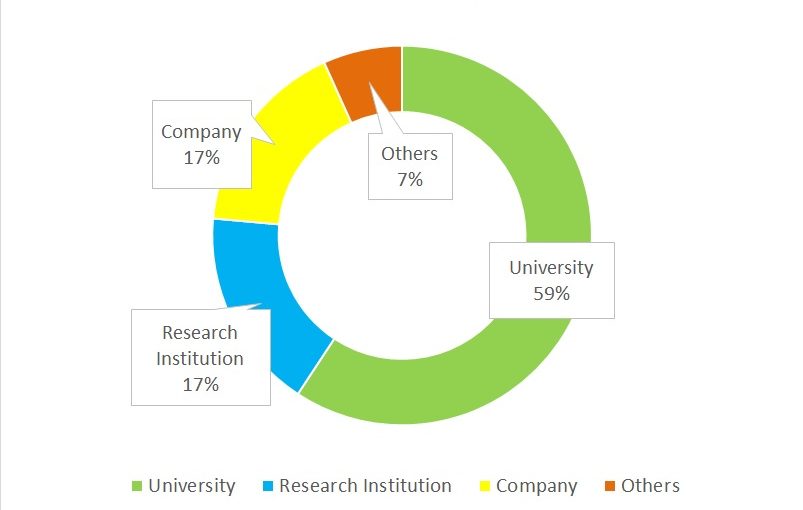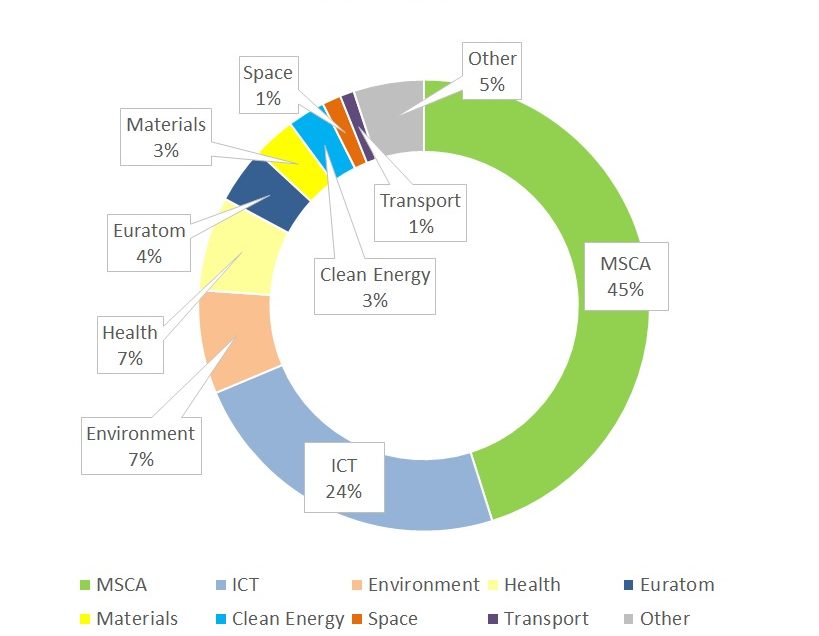Summary of EU-Japan collaborations through Horizon 2020 and FP7
191 projects with Japanese organisations in Horizon 2020
Japanese universities represent the largest group of organisations with about 60% of the participation, followed by research centers with 17% and Japanese companies with 17%.
Excluding joint and coordinated projects together with Japanese funding agencies, universities represent the largest group with 65% of the participation, followed by research institutions with 20%, and Japanese companies with 7%.
Looking by theme, projects related to MSCA represent with 45% of the total.
Japanese companies are largely participating through their affiliate organisations in Europe.
-
-
Participating Organisations (Including joint and coordinated projects together with NICT, MIC) 
-
-
Theme (Including joint and coordinated projects together with NICT, MIC) 
159 projects with Japanese organisations in FP7
The internationalization of Japanese research and researchers has experienced an important dynamism in the last years. The Japanese participation in FP7 has increased year after year since 2007 and around 100 Japanese entities have participated in 159 projects and have received around ten million Euros. About 62% of the Japanese participation was under Cooperation specific programnme, followed by People (around 24%) and Capacities (8%) programmes. Cooperation between Japanese and European entities in the EURATOM programme, both in the fission and fusion programmes, has also been significant. The thematic fields of the projects are mainly oriented towards the areas of information and communication technologies, environment, health, nanotechnology and security, being social sciences and humanities the field with the lowest participation. Success rates (from proposal to funding award) differ substantially between areas but the overall 31% for all programmes could be considered a good result given that the global overall FP7 success rate is around 20%. The European counterparts of the projects are spread across all EU and associated countries, being Germany, United Kingdom, France, Italy, Spain or The Netherlands the main counterparts of projects with Japanese participants and also the countries with the largest participation in FP7 in general terms.
The Japanese participants are mainly universities and public bodies and around 70 Japanese affiliated companies located in Europe also participated in the Programme.
Regarding individual grants, 49 researchers have undertaken mobility and career development research projects under People programme while 14 Japanese researchers have been funded by Ideas programme, through the European Research Council.
You can access the detailed analysis from JEUPISTE report D2.8: Update of Analysis of the EU-Japan Cooperation in Horizon 2020 (PDF, May 2016)

